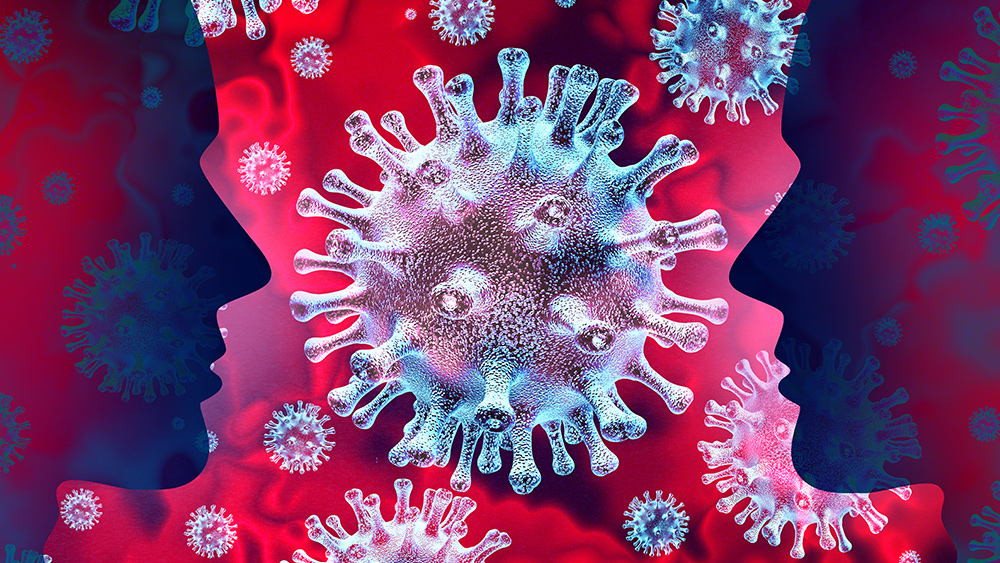Research finds link between joint hypermobility and increased risk of anxiety problems
01/26/2020 / By Darnel Fernandez

Anxiety disorders are one of the most common mental health concerns in the United States. According to the Anxiety and Depression Association of America (ADAA), these disorders affect about 40 million American adults, or 18.1 percent of the population each year. While anxiety disorders are highly treatable, the ADAA claims that only 36.9 percent of those suffering actually receive treatment. Previous research has established a relationship between joint hypermobility — a condition characterized by joints that stretch farther than normal — and anxiety in humans. However, this phenomenon has not been investigated in non-human species. Now, recent evidence suggests that the association within animals may not be too different from the findings in humans.
A study published in the journal Scientific Reports found a positive association between hip joint hypermobility and emotional arousal in an animal model, paralleling the results found in humans. According to the researchers, this study provides the very first evidence of this association in non-human species
“Many years ago our research group discovered a relation between hypermobility and anxiety, in which people with more joint mobility and flexibility also tended to have more problems with anxiety. Now for the first time we are able to demonstrate that this association also exists in a non-human species,” said corresponding author Jaume Fatjo.
The relationship between hip joints and anxiety
For this study, a team of researchers analyzed data on a set of 13 animal behavior characteristics and hip joint mobility in a total of 5575 domestic dogs supplied by The Seeing Eye organization. They chose domestic dogs (Canis familiaris) as their candidate species as they present physical health problems related to joint hypermobility syndrome and experience naturally occurring behavioral disorders that show face validity. All of the dogs have undergone a hip evaluation at approximately 18 months of age.
After the analysis, the results show that hip joint hypermobility is linked to emotion in dogs, which is similar to the findings observed in people. In humans, the researchers observed that this particular relationship is made evident by manifestations of anxiety, fear, agoraphobia and panic. The link to hypermobility is thanks to the indirect influence of emotional and mental states through the deregulation of the brain’s independent reactions which intensify emotional states. According to the researchers, this emotional reactivity or excitability is one of the risk factors for anxiety disorder.
All in all, their findings suggest that this particular link could be a universal trait in all mammals.
Natural relief for anxiety
While anxiety could be a regular part of daily life, leaving it unchecked could leave drastic effects on your overall health. Below you can find a list of ways that could help you naturally relieve your anxiety issues. (Related: Calm your anxiety and stress with these 10 natural herbs.)
- Quit smoking. People often go for a smoke when experiencing stressful times. However, this quick fix might make your anxiety much worse over time. According to a study published in the journal Brain and Behavior, your risk of developing an anxiety disorder later in life increases the earlier you start smoking. It is best to put down your cigarettes if you want to keep your anxiety issues at bay.
- Try out aromatherapy. The healing art of aromatherapy makes use of fragrant essential oils to promote general health and well-being. These oils may be inhaled directly or even added to bathwater. Research has shown that aromatherapy not only grants a boost in mood, but it also helps you relax and get significantly better sleep among other positive health benefits.
- Drop the caffeine. If you experience chronic symptoms of anxiety, you might want to cut down your caffeine intake. Indulging in caffeine can cause nervousness and jitters, neither of which are helpful if you experience chronic anxiety. Not only that, a study published in the journal Advances in Psychiatric Treatment found that caffeine intake can actually cause or worsen your anxiety disorders.
For similar stories on anxiety and other mental health issues, check out Mental.news.
Sources include:
Tagged Under: Anxiety, anxiety disorder, anxiety relief, aromatherapy, bone health, caffeine, cognitive function, hip joint hypermobility, joints, mental health, mind body science, research, stop smoking, stress



















